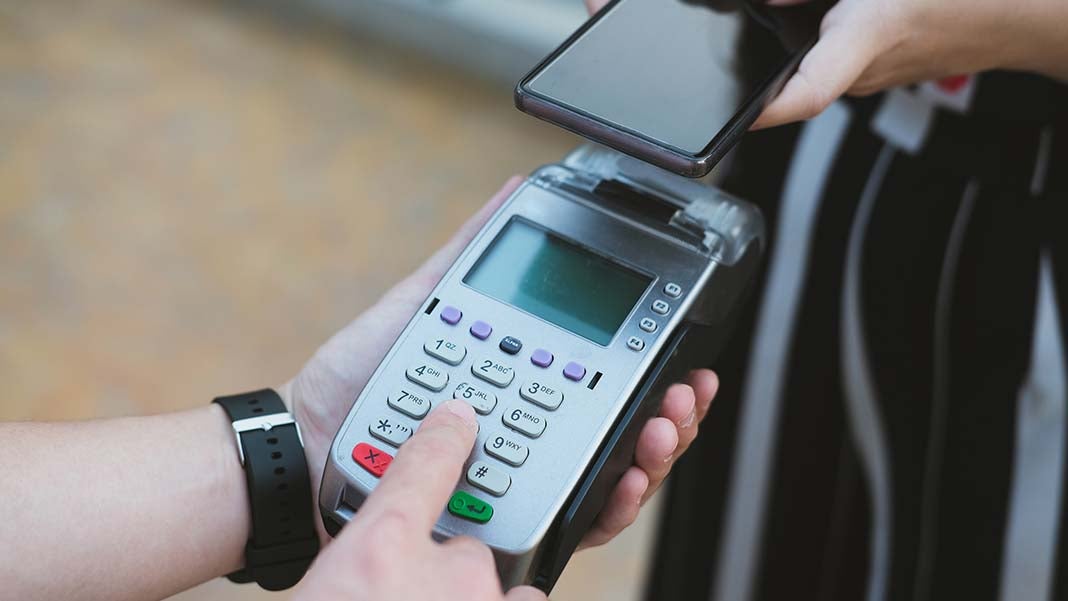
It seems that with every new store I visit, I notice it more and more often: Businesses replacing the traditional point-of-sale cash register with a smaller, slicker mobile device. Swiveling iPads, smartphones clutched by every employee—the type of mobile device used to collect payments varies, but their popularity in retail and restaurant environments must mean that they are more effective at collecting payments, right?
Click here to read more on Restaurant POS Systems
After doing some research of my own, I’ve discovered that mobile POS tools offer many more advantages to small businesses besides effectiveness. Their versatility, user-friendliness and environmental capabilities make them exceedingly attractive to most entrepreneurs—but anyone considering a mobile POS system should also consider a handful of downsides, such as insecurity, durability and cost.
The Pros
Technology is constantly changing, and to hold onto their paying audience, businesses need to stay with the times—or better yet, accurately predict the future. Mobile POS systems are certainly gaining popularity, and it is possible that they will be the only POS options in a few years, thanks largely to the following advantages they offer over traditional systems:
1. Versatility
Traditional POS options consist of unique and expensive equipment or else bulky computer programs that require most of a device’s processing power. Conversely, mobile POS systems are robust, offering the solutions businesses need to process transactions—such as mobile credit card processing, customer record maintenance, syncing online and in-person transactions and more—in a stripped-down, easy-to-use platform on a familiar, handheld device.
2. User-Friendliness
Speaking of easy to use, most everyone has a mobile device of some shape or form, so employees and customers alike feel more comfortable interacting with mobile POS systems. Employee POS training can be dramatically reduced, and customers will be less likely to abandon their purchases when confronted with a recognizable payment interface. Thus, businesses have the opportunity to save time and energy while earning more money with a mobile POS.
3. Environmentalism
A majority of millennial consumers prefer to buy from businesses who act sustainably, so any small thing a business can do to increase its green reputation is a big bonus. Mobile POS systems help reduce waste by producing a paperless payment process. Though it is possible to connect mobile POS devices to receipt printers, the default settings are emailed receipt or no receipt at all. Considering that receipts cost the U.S. more than 250 gallons of oil, 10 million trees and 1 billion gallons of water—only to create 1.5 billion pounds of waste—eliminating receipts should increase a brand’s environmentalism significantly.
The Cons
Admittedly, all new tech comes with concerns. Mobile POS is relatively new, meaning it comes with quite a few issues which have yet to be fully or adequately addressed. Before any business owner rushes out to buy mobile devices for their POS, they should consider these notable downsides to deviating from traditional POS methods:
1. Insecurity
Computers have long been the primary targets of cyberattacks, but lately, mobile devices are enduring a more sizeable share of malware and hacks. The problem is that few mobile users equip their mobile devices with the same security measures used on computers, like antivirus programs, firewalls and strong passwords. Business owners need to be careful to protect their mobile POS systems as they would traditional POS equipment. Better yet, they should ensure their entire business network is thoroughly and impenetrably safe.
2. Durability
Not much can endanger a device that is physically tied to a desk, but mobile devices are meant to be moved about, which means they are subject to far more dangers than typical POS systems. Even ignoring cyberattack, threats to mobile POS systems are numerous: physical theft, drops, water damage and more. Mobile devices aren’t exactly known to be durable, so it is possible that businesses will need to pay to protect their POS systems from accidental harm—or else pay to replace them often.
3. Cost
Because of extra costs incurred through cyber-security measures, because of costs to physically protect and replace devices and because of the initial investment required to procure state-of-the-art mobile devices, mobile POS options aren’t cheap. Apple products are especially costly and investing in enough iPad and iPhone devices to serve a growing business can require significant capital.
Still, for many businesses, these disadvantages are heavily outweighed by the upsides of mobile POS systems. Business owners should consider the costs as well as the benefits when determining if mobile POS options are right for them.
8114 Views












